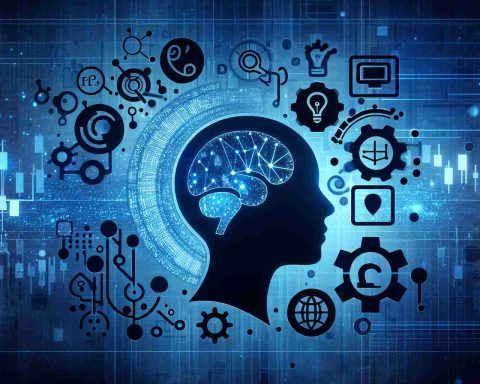Artificial intelligence has made significant strides in recent years, enabling the animation of historical figures from literature. Recent developments have brought to life the beloved Ukrainian poets and writers, including Lesya Ukrainka, Taras Shevchenko, Ivan Franko, and Olena Pchilka.
These animated portraits have captivated social media users as they showcase the expressive smiles and facial movements of these literary giants. The project highlights not only the creativity and innovation of technology but also offers a fresh perspective on these cultural icons. By animating their likenesses, audiences can engage with these figures in an unprecedented way, almost as if they are stepping into a conversation with the past.
Through carefully crafted algorithms, the AI has been able to recreate the essence of these authors, infusing a sense of dynamism into their portraits. This newfound interactivity allows fans and newcomers alike to appreciate their contributions to literature and culture more vividly.
The fusion of art, history, and technology reminds us of the enduring impact these writers have on modern society. As the digital world continues to evolve, such innovative projects provide a bridge between generations, keeping the spirit of these literary figures alive for future audiences. The animation of these iconic personalities is not just entertainment; it is a celebration of heritage and creativity in the age of technology.
Reviving Literary Icons through AI Animation: A New Frontier
The advent of artificial intelligence (AI) has opened exciting avenues for the revival of literary icons through animation. While recent projects have focused on animating Ukrainian poets and writers such as Lesya Ukrainka and Taras Shevchenko, this trend extends far beyond a particular geographical or cultural scope. By leveraging advanced machine learning algorithms, animators and historians are breathing new life into the portraits and narratives of revered authors from various backgrounds, creating a rich tapestry of interactive literary heritage.
What are the most significant questions surrounding AI animation of literary figures?
1. How accurate is the representation?
– While AI algorithms can produce stunning visual renditions, the accuracy of facial movements, expressions, and mannerisms often depends on the quality of available historical data. The representations may blend artistic interpretation with historical authenticity, leading to a discussion about the fidelity of these animations to the original personas.
2. What is the cultural impact of such animations?
– The cultural implications vary across different societies. In some instances, AI animations can revitalize interest in marginalized voices in literature, while in others, they may reinforce existing narratives by commercializing cultural icons.
3. What are the ethical concerns associated with AI-generated content?
– Questions arise regarding the ownership of likenesses, the potential exploitation of an author’s image, and who controls these representations. There is a risk of diminishing the depth of an author’s work by focusing too heavily on superficial animations.
Key Challenges and Controversies
1. Preservation vs. Innovation:
– Balancing the preservation of literary heritage with innovative storytelling techniques can be contentious. Some purists argue that animation risks oversimplifying complex narratives, while others see it as a necessary evolution of cultural expression.
2. Cultural Appropriation:
– When animating figures from cultures that are not one’s own, the risk of cultural appropriation emerges. Care must be taken to respect the context and significance of each literary icon.
3. Monetization Issues:
– There’s ongoing debate about the commercial aspects of AI animations. Should such projects be monetized, and who benefits from the generated revenue? The tension between artistic expression and profit can mar community perceptions.
Advantages of AI Animation
– Enhanced Accessibility:
– AI animations can make literature more accessible to diverse audiences, bridging gaps for those who may be intimidated by traditional texts. Engaging visuals can entice younger generations to explore classic works.
– Educational Tools:
– Animated representations can be powerful educational tools, providing visual and immersive experiences that may enhance understanding and retention of literary themes and contexts.
– Revitalization of Interest:
– By bringing historical figures into contemporary discussions, AI animations can spark renewed interest in literary studies, prompting audiences to delve deeper into the works of these authors.
Disadvantages of AI Animation
– Over-Simplification:
– The risk of oversimplifying complex narratives and characters into mere animations can dilute the richness of literary works, leading to misinterpretations of their impact.
– Dependence on Technology:
– An increasing reliance on AI-driven content might overshadow traditional methods of literary engagement, such as reading and critical analysis, which are vital for comprehensive understanding.
– Risks of Misrepresentation:
– Without rigorous historical research, there’s a danger that animations could misrepresent the cultural meanings and intentions behind a literary figure’s work, leading to a lack of depth in audience engagement.
In conclusion, while the animation of literary icons through AI presents exciting potential for cultural engagement and educational innovation, it also necessitates a careful consideration of ethical and historical contexts. The intersection of technology and literature calls for a dialogue about preservation, authenticity, and the future of storytelling in an increasingly digital world. For more insights on AI and cultural heritage, consider visiting NEA.

















